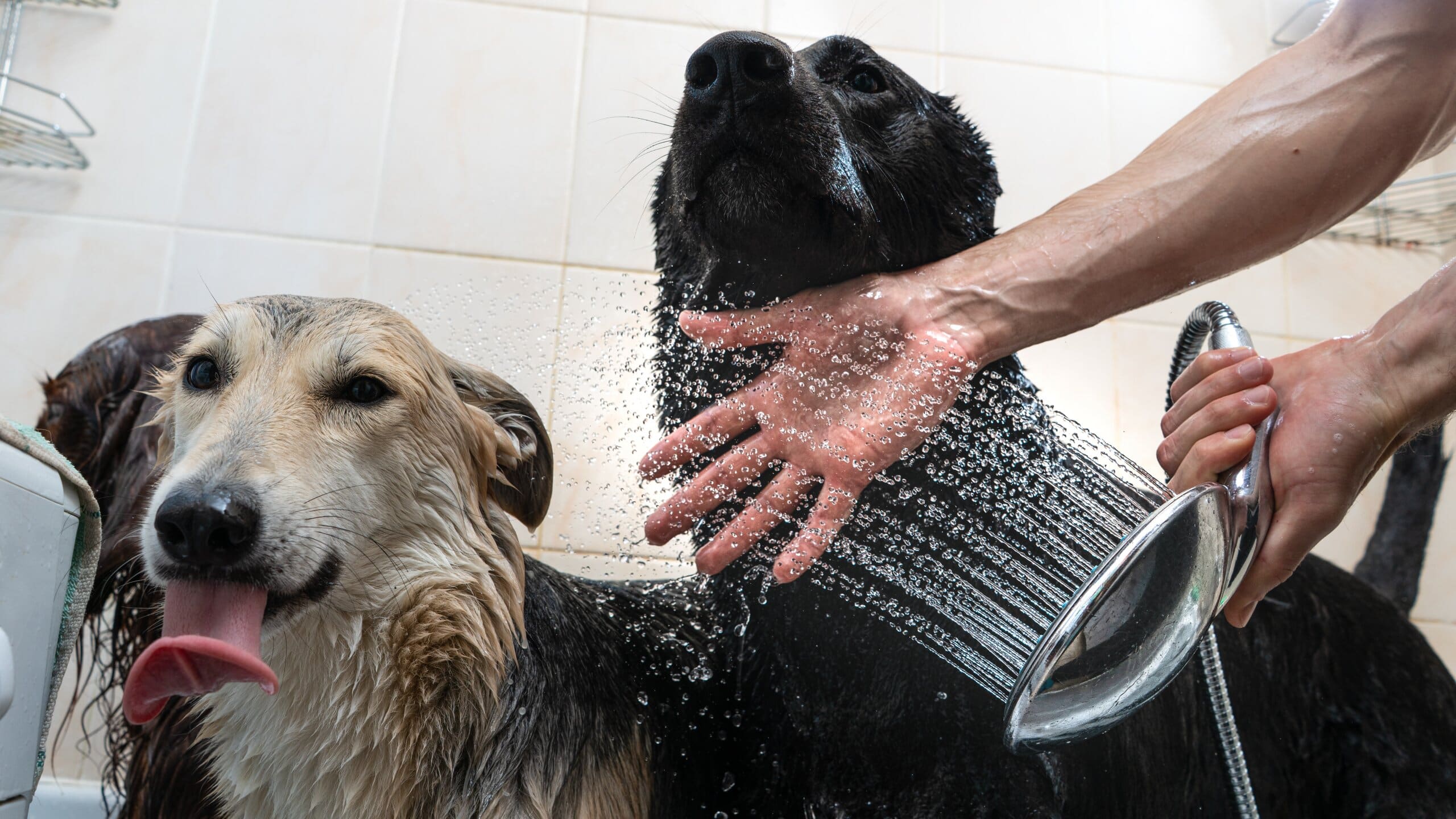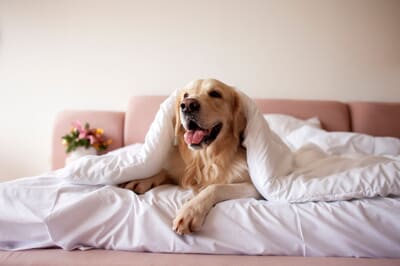Dogs find it much harder than humans to regulate their body temperature - imagine if you had to wear a fur coat all summer! And especially for dogs bred for cold weather, such as Huskies and Chow Chows, it can take some time for their cooling top coat of fur to adapt to the warm weather, making them incredibly hot at night. Here's how to keep your dog cool at night to ensure a comfortable, undisturbed night's sleep for everyone.
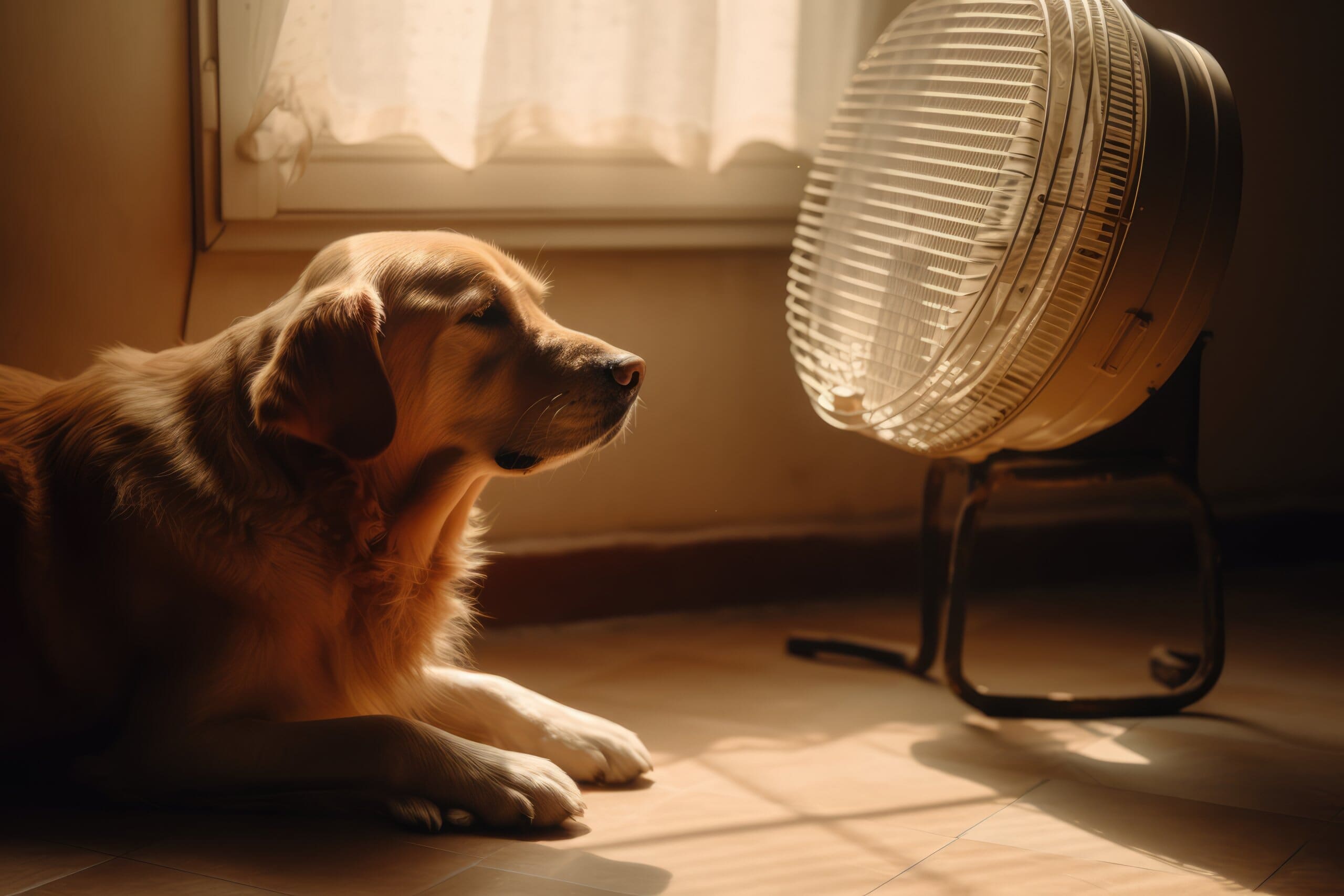
Why does my dog get so hot?
As mentioned, dogs with thick fur tend to have two coat layers - a warming base coat and a cooling top coat. Generally, these dogs can deal well with gradual changes in heat, but when the English weather decides to give us a sudden weekend heatwave (thanks!) they can struggle to adapt.
Whilst humans can sweat to help cool down their core body temperature, dogs can’t, and have to pant to vent heat from their mouth and tongue. This isn’t as effective as needed during really hot weather, and the risk of heatstroke in dogs gets higher and higher.
Why is my dog so hot at night?
Even humans hate sticky, hot nights of tossing and turning (read our ‘10 Tips For Getting To Sleep In The Heat’ to help). While you can throw your duvet off, dogs can’t throw their fur off, so need an extra helping hand keeping cool at night.
Dogs have a body temperature that’s 3-6 degrees hotter than humans, so if you’re feeling too hot, your dog definitely is.
How do I know if my dog is too hot at night?
Your dog’s body language will tell you everything you need to know about how hot they are. The key signs that your dog is overheating are:
- Frantic panting
- Lots of salivation and drooling
- Struggling to breathe, or rapid breathing
- Vomiting and diarrhoea from dehydration
- Disorientation and bumping into things
- Bright red gums
If you notice these symptoms and can tell your dog is acting differently, you should take them to the vet - if your dog’s temperature reaches 41 degrees, they may go into a metabolic meltdown and no longer be able to cool themselves down without help.
On a less extreme level, you can tell if your dog is uncomfortable at night as they won’t be able to settle down. They may keep bothering you, which might be annoying if you’re trying to sleep, but they just need some help to cool down.
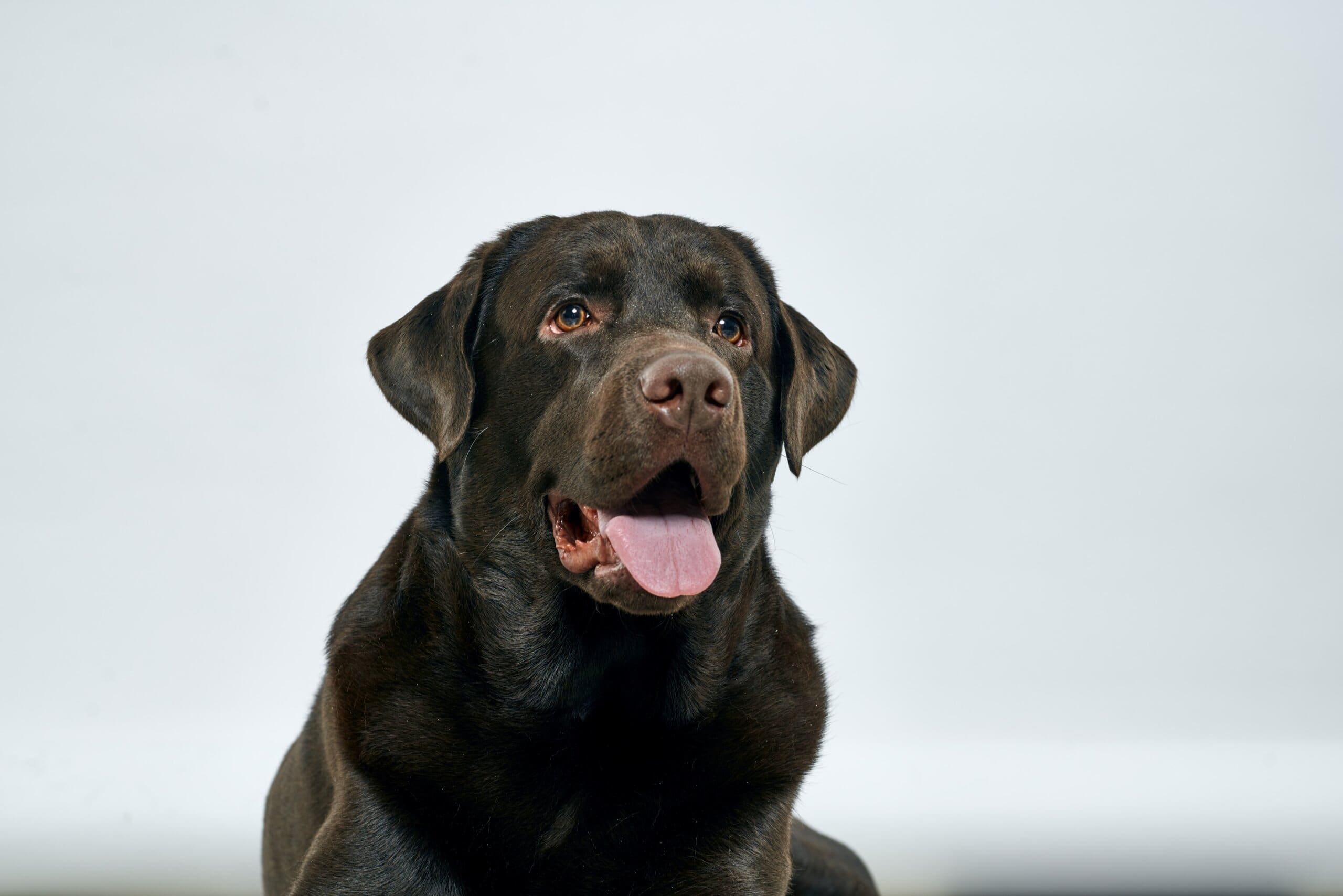
How to keep your dog cool at night
It’s unlikely your dog will develop heatstroke during the night - this would usually happen during the day when the weather is at its warmest, however the heat can make your dog very uncomfortable and potentially ill if they get too warm at night.
There are many things you can do to cool down your dog at night. Our experts share 7 tips for making sure your dog has a cool, refreshing night’s sleep like they deserve!
1. Lay a damp towel down for them
As a dog owner, you’ve probably seen cooling mats advertised everywhere, and they’re a great investment in hot weather for your pet. During the night, however, you’ll want to give your dog some options for where to sleep, as different areas of your house or bedroom will have different temperatures.
Buying loads of cooling mats can get expensive, but laying a slightly damp towel down in a few different areas of your home gives your dog plenty of choice for where to sleep and get cool.
2. Let them sleep wherever they want
Following on from that, you should let your dog sleep wherever they want, letting them walk around and find their perfect cooling sleep spot. Don’t try to force your dog into bed with you - it’ll get far too hot and dangerous for the both of you.
You might’ve put a fan down on the floor or cracked a window for them, but your dog knows what it needs best, so don’t expect them to definitely sleep where you’ve set up for them.
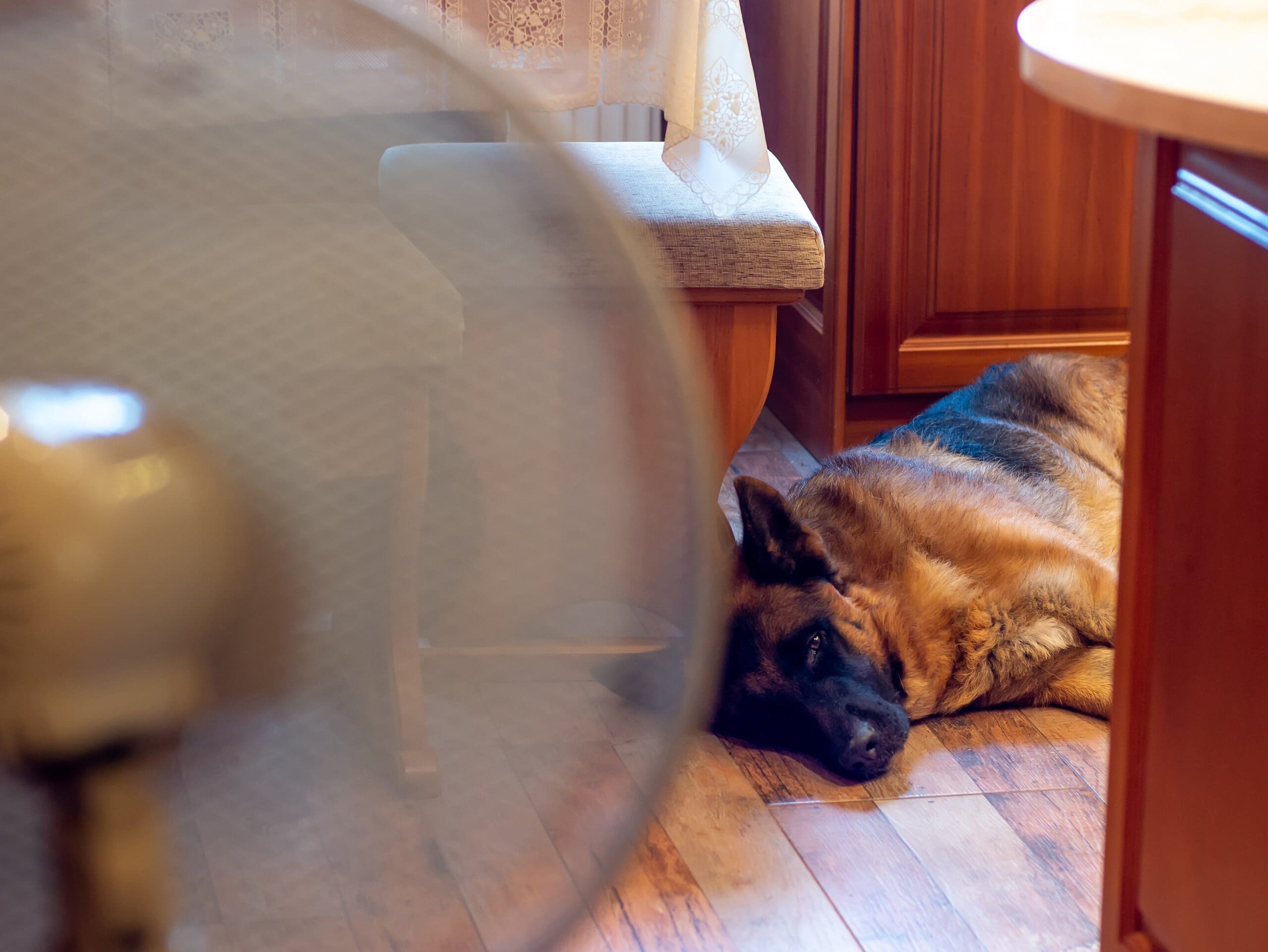
3. Place bowls of water around the house
As for any pet, you should keep enough water super accessible for them at all times. You probably take a glass of water to bed with you in warm weather, so do the same for your dog - place a bowl of water down in the areas you think your dog is likely to choose to sleep.
4. Give them a frozen treat or chew toy before bedtime
A frozen treat can help to cool your dog’s stomach and core body temperature before bed. A treat that includes frozen liquid will also help to hydrate your dog, so consider freezing the water leftover from boiling rice, or some bone broth to give them a tasty flavour that will keep them interested.
Freeze a few treats in some water - such as carrots or pieces of chicken - and pop them in a kong for your dog to play with before bed. This will cool them down nicely before bed, helping them get to sleep quicker without uncomfortably trying to find a less hot spot to sleep.
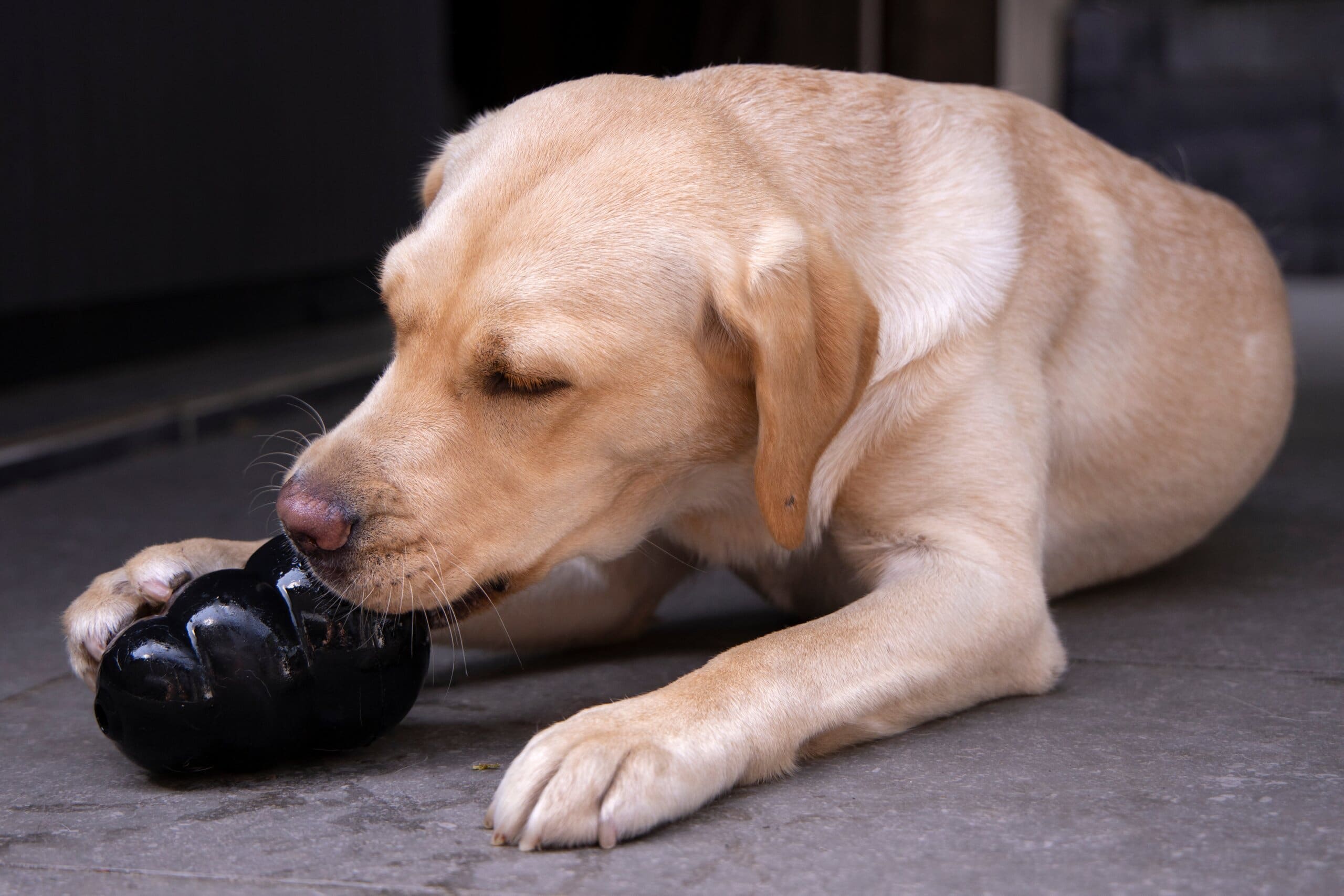
5. Make sure your dog is groomed properly
Your dog’s fur is designed to regulate their temperature, so long as it’s kept in good condition. Of course, lots of dogs aren’t bred for the UK weather, so might struggle when we get a sudden bit of sun (however rare it might seem!).
Shaving your dog’s fur off will not help them at all - removing their coat entirely will remove vital protection from the environment and permanently damage their fur.
Instead, brush your dog regularly to remove excess fur, and help them shed their fur properly. Many dogs begin to shed in the spring to make a lighter coat as the weather warms up, but lots of dogs also shed just to remove dead, old hair to make way for new growth.
Brushing this old fur away can seriously help to keep your dog cooler, removing the layers of hair that heat can get trapped under.
6. Keep your dog calm in the evening
You might be tempted to play in the garden with your dog in the evening to wear them out before bed, but this will only use up their energy that’s needed for temperature regulation, and increase their heart rate.
A calm, relaxed dog has a lower body temperature than an excited one, so try to keep your dog peaceful and chilled out before bed. Help your dog wind down just like you would by sitting calmly and avoiding anything energetic.
Talk to your dog in a soft, soothing voice that lets them know it’s time to relax - this will help them regulate their breathing and therefore regulate their temperature.
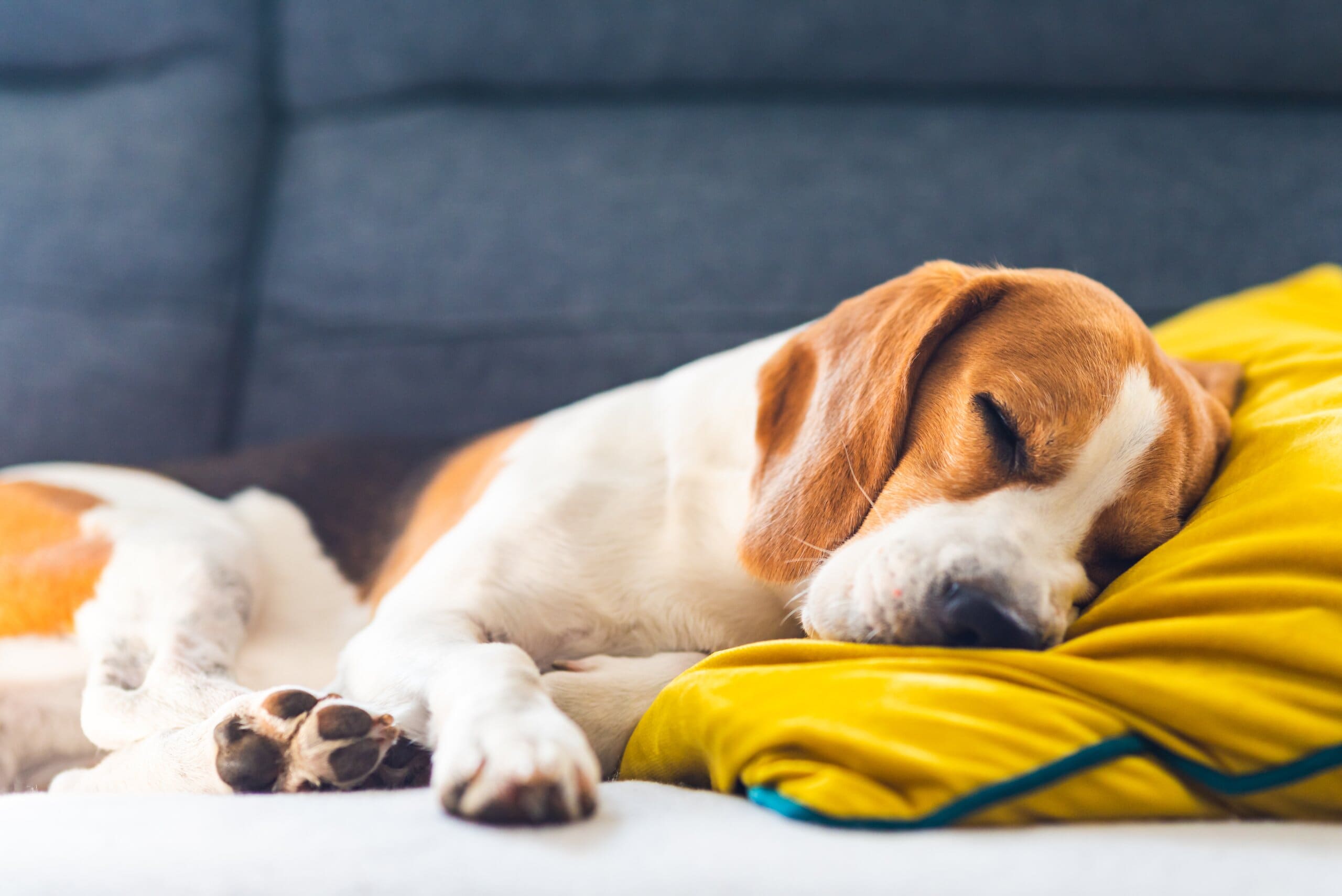
7. Put a frozen water bottle in your dog’s bed
Just like you might follow our tip for cooling yourself down by putting a frozen hot water bottle in your bed, you can do the same for your dog.
Get a few plastic bottles of water and freeze them, before popping them around the edges of your dog’s bed. This will quickly cool their sleeping area and the air around it, especially if you’ve got a fan that can pass air over it, like a homemade air conditioning unit.
How to cool down an overheated dog quickly
If you think your dog has gotten too hot, whether that’s during the day or night, here’s three ways you can cool them down fast.
1. Drape a cold, wet towel over them
Take a towel and soak it in cold (not icy) water. Wrap the towel around your dog, letting the water soak into their fur. You can then sit them in front of a fan to increase the cooling effect. This is one of the fastest ways of cooling your dog down.
2. Pour cold water over your dog's tummy
Pop your dog in the bath and gently pour cold water over their body, paying extra attention to their tummy, neck and thighs. Just like you’d appreciate a cold shower in hot weather, your dog will too. If your dog is panting a lot or their breathing is rapid, make sure they don’t inhale any water, as they could choke. If it’s safe, however, encourage your dog to drink the cold water, as this will cool their body temperature down quickly too.
3. Immediately give your dog cold water - but not ice
It was once thought that rapidly changing your dog’s temperature by giving them ice etc. was dangerous, however pet organisation Blue Cross say that ice is safe for dogs on hot days.
However, if your dog is showing signs of overheating, do not give them ice, as this will not cool them down quick enough and may result in choking. If your dog is overheating, focus on cooling them down with cold water, and contact your vet immediately.
